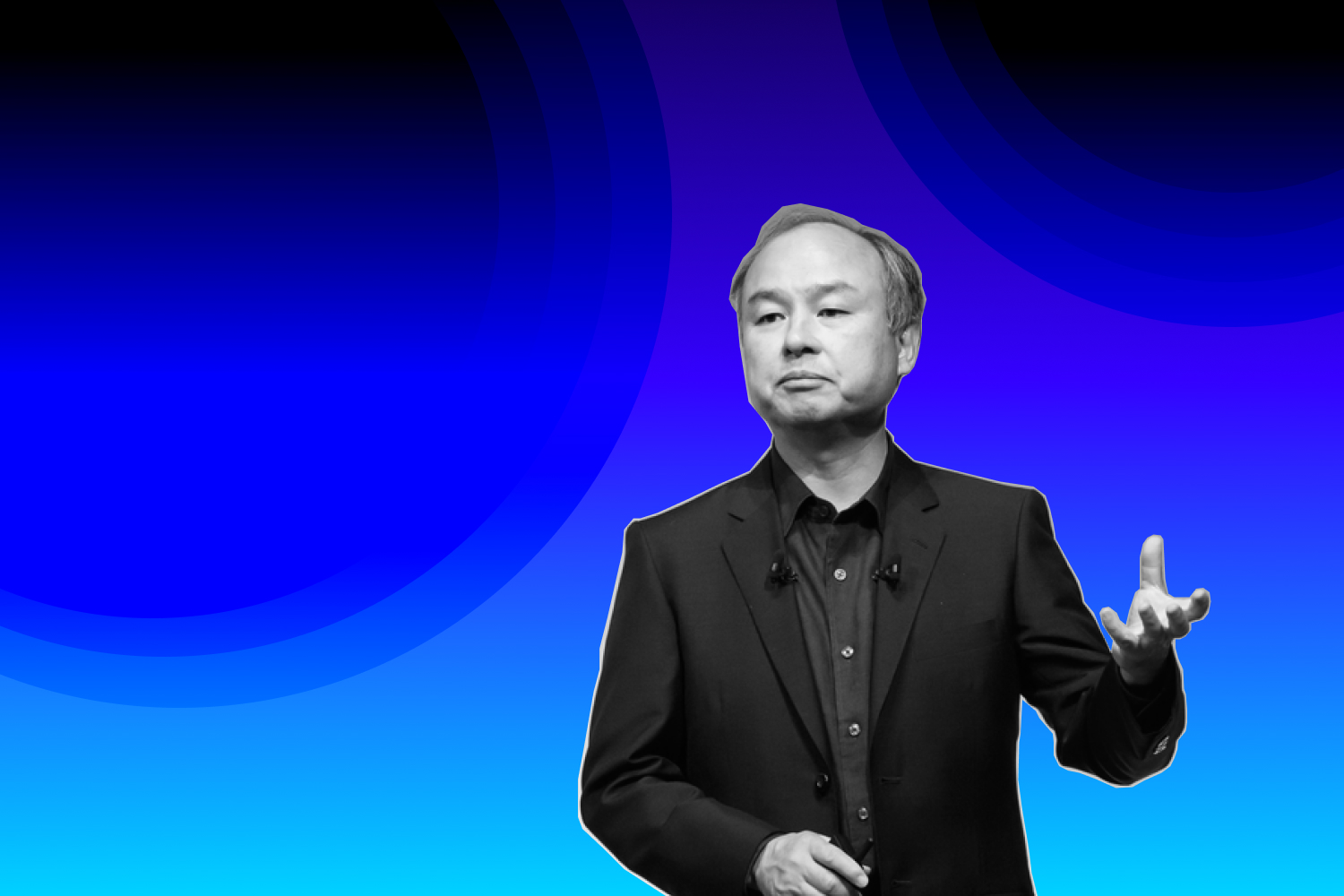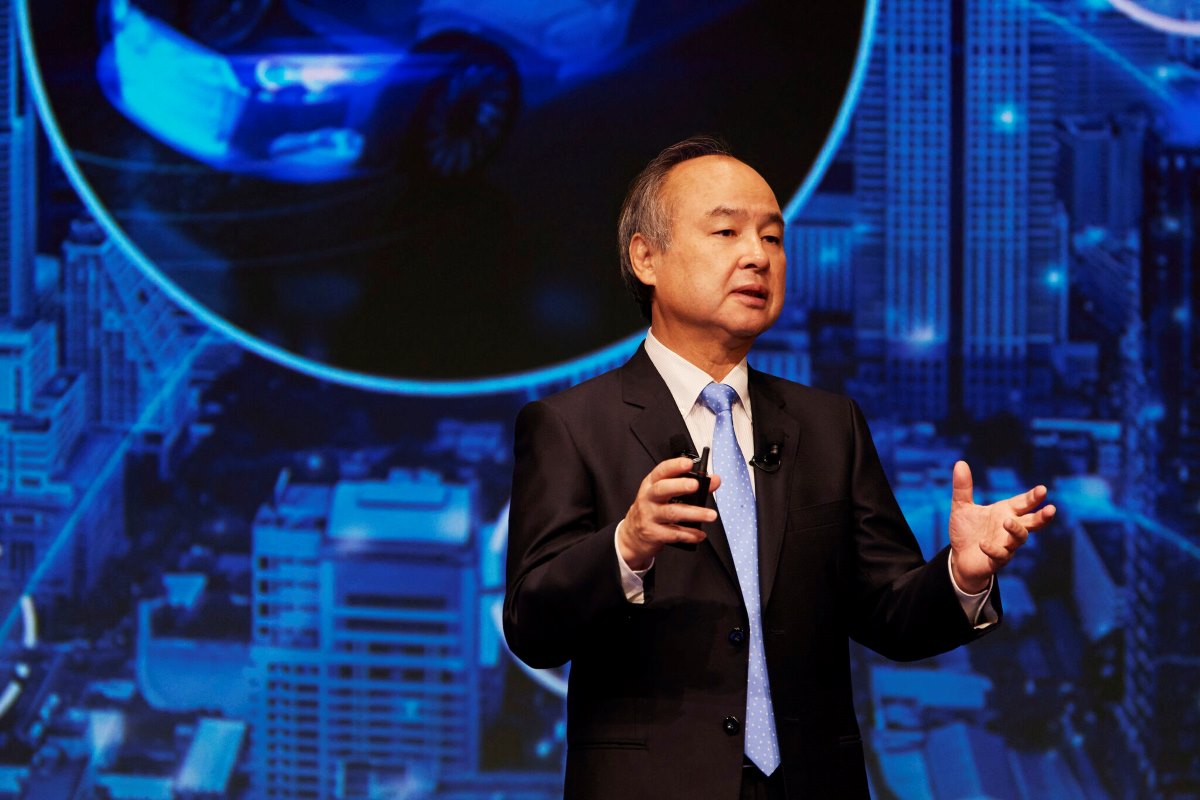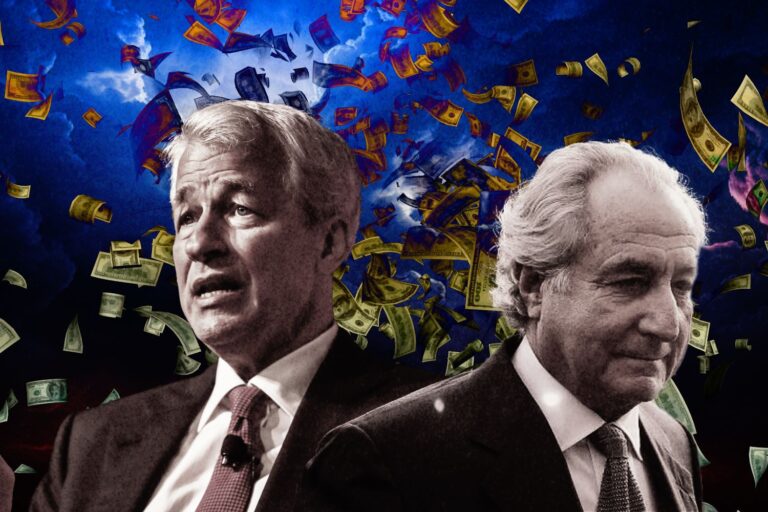SoftBank’s Roller-Coaster Ride: How the Investment Lessons of $70B and Beyond Taught

Undoubtedly, the dot-com crash of the early 2000s was a significant event that disrupted the technology industry and the global economy as a whole. The crash resulted in the closure of numerous internet-based companies and a significant decline in technology stocks.
Japanese multinational conglomerate SoftBank Group Corp. was one of the many companies hard hit by the dot-com crash, suffering a massive loss of $70 billion during the downturn. This loss could have had severe implications for the company’s financial stability and ability to pursue future investments.
Under the leadership of its CEO, Masayoshi Son, SoftBank has faced several challenges and controversies, including scrutiny over its investment strategy, debt levels, and governance practices.
However, the company has continued to pursue ambitious investment goals and establish itself as a major player in the technology investment landscape. In this article, we will explore the identity crisis attacking SoftBank, particularly with the impact of the dot-com crash and how Masayoshi Son’s leadership has shaped the company’s response to these issues.
Risky Investments and the Cost of the Dot-Com Crash: A $70 Billion Lesson
From its humble beginnings as a software distributor in the 1980s, SoftBank has grown into a global conglomerate with diverse business interests. The company’s expansion was driven by its founder and CEO Masayoshi Son, who has a reputation for bold and unconventional strategies.
Today, SoftBank has built its empire with a diverse portfolio of companies operating in critical industries such as telecommunications, e-commerce, finance, and technology. One of the keys to SoftBank’s success has been its ability to identify and invest in promising startups and technology companies.
For example, the company’s $20 billion investment in the Vision Fund has empowered the Japanese player to become one of the largest technology investors in the world. Similarly, SoftBank’s $9.5 billion investment in Uber has allowed the ride-hailing company to expand its operations globally. SoftBank’s strategy of investing in high-growth companies with disruptive technologies has helped it to stay at the forefront of the rapidly changing technology landscape.
However, before SoftBank became the multinational conglomerate that it is today, the company faced several challenges.
During the dot-com bubble burst in the early 2000s, SoftBank suffered huge financial losses due to the failure of several of its investments in various internet and technology companies. SoftBank’s investment portfolio had significant exposure to companies that were overvalued and lacked sustainable business models, which ultimately led to losses.
Astonishingly, the cost of this “risky investment lesson” totaled around $70 billion, making it one of the biggest corporate losses in history. SoftBank’s share price plummeted during this period, dropping from a peak of over 20,000 yen in 2000 to around 2,000 yen in 2002.
SoftBank’s investments in the dot-com era were not limited to e-commerce startups like Webvan and eToys. The company also invested heavily in telecommunications and internet infrastructure companies, many of which went bankrupt during the dot-com crash. One notable example is Global Crossing, a telecommunications company in which SoftBank invested $1.4 billion. Global Crossing went bankrupt in 2002, causing SoftBank to lose a significant portion of its investment.
SoftBank’s debt increased significantly due to the failed investments, and the company had to sell some of its valuable assets to reduce its debt load. One of the significant assets SoftBank had to sell was its stake in Yahoo! Inc. The Japanese firm had invested $1 billion in Yahoo! in 1996 and held a 34% stake in the company at the height of the dot-com boom. However, SoftBank had to sell a significant portion of its Yahoo! stake to pay off its debts.
“SoftBank was heavily invested in internet and technology companies at that time, and many of them turned out to be overvalued and unsustainable. It was a tough lesson for us,” recalled Masayoshi Son. “We lost around $70 billion during that period, which was one of the largest corporate losses in history. Our share price plummeted, and we had to sell off some of our valuable assets to pay down debt and restructure our operations.”
SoftBank’s Turnaround Strategy: Hit or Miss?
After facing significant losses during the dot-com bubble burst, SoftBank’s founder and CEO Masayoshi Son knew he had to take drastic action to turn the company’s fortunes around. Son realized that the company’s investment strategy needed to change with key focus redirecting more to sustainable and profitable business models.
“It was a painful experience, but that was a turning point. The fact that we didn’t die in that crash taught us the lesson that if we stick to it and fight on, we can eventually turn things around.” – Masayoshi Son.
“It was a tough time for SoftBank, but we learned a lot from it and came out stronger in the end.” – he also stated.
To address SoftBank’s debt problem, Son initiated a series of cost-cutting measures, including selling off non-core assets and restructuring the company’s operations. Besides Yahoo!, in 2003, SoftBank sold its stake in Ziff Davis, a media company it had acquired for $2.1 billion, for just $160 million.
Additionally, Son sought to diversify SoftBank’s portfolio and reduce its exposure to volatile technology investments. In 2006, SoftBank acquired Vodafone Japan, the third-largest mobile phone carrier in Japan, for $15.2 billion. The acquisition helped SoftBank to expand into the telecommunications industry and reduce its reliance on technology investments.
One example of SoftBank’s more disciplined approach to investing is its investment in Alibaba Group Holding Ltd. The venture capital invested $20 million in Alibaba in 2000 when the company was just starting. SoftBank’s investment in Alibaba turned out to be one of the most profitable investments in the company’s history. When Alibaba went public in 2014, SoftBank’s 32% stake in the company was worth around $50 billion.
Another example of SoftBank’s more disciplined approach is its investment in Arm Holdings, a semiconductor and software design company. SoftBank acquired Arm Holdings for $32 billion in 2016, and the company has since become a significant player in the semiconductor industry.
“We have long admired Arm as a world-renowned and highly respected technology company that is by some distance the market-leader in its field. Arm will be an excellent strategic fit within the SoftBank group as we invest to capture the very significant opportunities provided by the ‘Internet of Things’.”
The company has continued to make strategic investments in various technology companies, including Uber and WeWork.
SoftBank’s investment in Uber is one of its most notable successes. In 2018, SoftBank invested $7.7 billion in Uber, making it the largest single investment in a private company in history. The investment has paid off well for SoftBank, with Uber’s IPO in 2019 valuing the company at over $82 billion.

Saying that, SoftBank did come up against lots of challenges in its investment portfolio. One example is the failed IPO of WeWork, a co-working space provider. SoftBank had invested heavily in WeWork and had planned to take the company public in 2019. However, the IPO was ultimately canceled due to concerns over WeWork’s financial performance and corporate governance issues. This led to a significant loss for SoftBank and forced the company to write down the value of its investment in WeWork by over $9 billion.
Following the failed IPO of WeWork in 2019, SoftBank’s reputation was negatively impacted, and investor confidence in the company was shaken. SoftBank’s CEO, Masayoshi Son, publicly apologized for the failed IPO and acknowledged that the company’s reputation had been damaged as a result.
“I have reflected deeply on the responsibility that comes with our influence, and the lessons we have learned. The vision we had for WeWork, while transformative, needed to be tempered with a clearer view of governance, accountability and profitability. I have learned this lesson and will never forget it.”
SoftBank’s share price also declined in the aftermath of the WeWork debacle, as investors questioned the company’s investment strategy and ability to manage its portfolio of companies effectively.
According to a Reuters article from October 2019, “SoftBank Group Corp’s shares dropped 2% on Wednesday, taking losses to 12% since it reported massive potential losses at its giant Vision Fund.” The article goes on to say that the WeWork fiasco was a significant factor in the decline, as it raised concerns about SoftBank’s investment strategy and due diligence processes.
Additionally, a Bloomberg article from the same month reported that SoftBank’s shares had experienced their biggest drop in six months, with investors expressing concerns about the company’s governance and investment strategy. The article notes that the WeWork debacle was a key factor in the decline, as it raised doubts about SoftBank’s ability to manage its portfolio of companies effectively.
On the Road to Shape the Future: A Visionary Leader at the Helm of SoftBank
Masayoshi Son’s leadership has been instrumental in SoftBank’s turnaround strategy and investment portfolio. His ability to pivot SoftBank’s investment strategy and diversify the company’s portfolio has been a defining factor in its success.
Son is known for his visionary leadership and willingness to take calculated risks, such as investing in Alibaba Group when it was just starting. He has also been quick to acknowledge and learn from his mistakes, as evidenced by his public apology following the WeWork debacle.
Under Son’s leadership, SoftBank has expanded its presence globally, with the company investing in numerous technology startups and established companies worldwide. Son has a track record of identifying innovative technologies and investing in companies that he believes will have a significant impact on the future.
For example, SoftBank’s Vision Fund, which was launched in 2017, has invested in some of the world’s most valuable technology companies, including Uber, WeWork, and Didi Chuxing. The fund initially started with $100 billion in capital, which was raised from investors such as the Saudi Arabian government, Abu Dhabi’s sovereign wealth fund, and Apple.
In addition, SoftBank has invested in companies such as Boston Dynamics, and Nvidia, among many others, through its various funds. Son’s global investment strategy has helped SoftBank become one of the most influential technology investors in the world and has positioned the company to benefit from some of the most significant technological advancements in recent years.
In addition to his role at SoftBank, Son has been actively involved in philanthropic initiatives. In September 2019, he announced the creation of the $2 billion Vision Fund for Education, stating that the fund would invest in education technology startups and initiatives that improve education accessibility and quality globally. The fund is expected to operate alongside SoftBank’s existing Vision Fund, with Son contributing $1 billion of his own money to the initiative.
Son’s commitment to renewable energy is also well documented. In 2016, he launched the SoftBank Group Renewable Energy Division, which aims to promote the use of renewable energy sources in Japan and around the world. SoftBank has also invested in a number of renewable energy startups, including Energy Vault, a Swiss company that uses concrete blocks to store renewable energy, and SB Energy, a joint venture with Indian energy company Bharti Enterprises.

The CEO has also been vocal about his belief in the potential of artificial intelligence to transform society, and SoftBank has made a number of investments in AI startups and companies. In 2017, SoftBank acquired Boston Dynamics, a robotics company known for its development of advanced humanoid robots, and in 2019, it acquired a majority stake in WeWork, a company that uses data and AI to optimize workspace management.
In a 2017 interview with Bloomberg, Son stated, “AI will change every industry. This is an opportunity. This is a threat.”
He also discussed his interest in investing in AI startups, saying, “We want to support those entrepreneurs who want to change the world.”
As of September 2021, Masayoshi Son has a net worth of approximately $45 billion, according to Forbes. This makes him one of the richest people in Japan and one of the wealthiest individuals in the world. His fortune is largely tied to his ownership stake in SoftBank, which has seen significant growth under his leadership.
Bottom Lines
Son’s ability to adapt and navigate through challenging periods is a testament to his leadership and strategic thinking. His willingness to take risks and make tough decisions in the face of adversity is a hallmark of his leadership style, and it has been crucial to SoftBank’s resilience in the face of economic uncertainty.
Despite the setback, SoftBank under Son’s leadership continues to be one of the most influential technology investors in the world, with a diversified portfolio that includes some of the most promising startups and established companies in the industry.
As SoftBank continues to weather through challenges, Son’s leadership will undoubtedly continue to be a driving force behind the company’s success.







